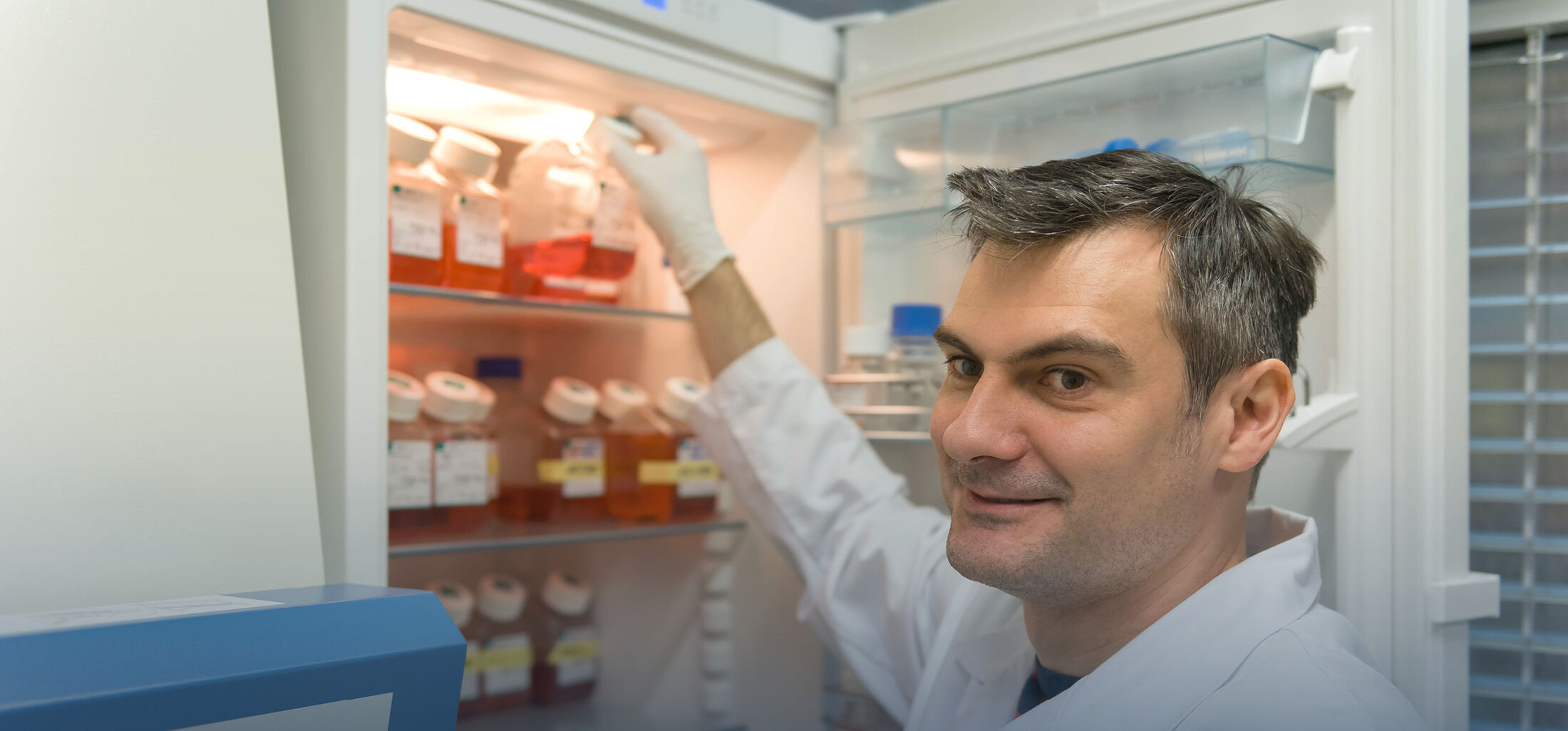CD13 (aminopeptidase N) is a type-II membrane protein with an extracellular zinc-dependent metalloprotease domain. CD13 was originally identified as a surface protein in myeloid cells, however, its function in such cells has remained elusive. In cooperation with partners from Germany, Austria, and the United Kingdom we were able to demonstrate that that CD13 is a negative regulator of mast cell activation (Zotz et al. (2016) FASEB J. prepublished on March 02; Link: www.ncbi.nlm.nih.gov/pubmed/26936360). CD13 was found to functionally interact with the high-affinity receptor for IgE (FceRI), which is decisively involved in the allergen-triggered activation of mast cells during initiation of allergic reactions. Allergen stimulation of CD13-deficient murine mast cells resulted in significantly increased degranulation and proinflammatory cytokine production compared to wild-type cells. Furthermore, in a low-dose model of passive systemic anaphylaxis, the antigen-dependent anaphylactic reaction was substantially enhanced by the CD13 inhibitor bestatin and by CD13 deficiency in contrast to controls. Thus, we have identified CD13 as a novel negative regulator of MC activation in vitro and in vivo. Further research aiming at the identification of additional FceRI-interacting surface proteins on mast cells will provide novel target structures for the development of mast cell regulators/stabilizers.
Finally a role of CD13/aminopeptidase N in myeloid cells: Negative regulation of mast cell activation in vitro and in vivo
Für Presserückfragen wenden Sie sich bitte an:
Uniklinik RWTH Aachen
Stabsstelle Unternehmenskommunikation
Dr. Mathias Brandstädter
Tel. 0241 80-89893
kommunikationukaachende


